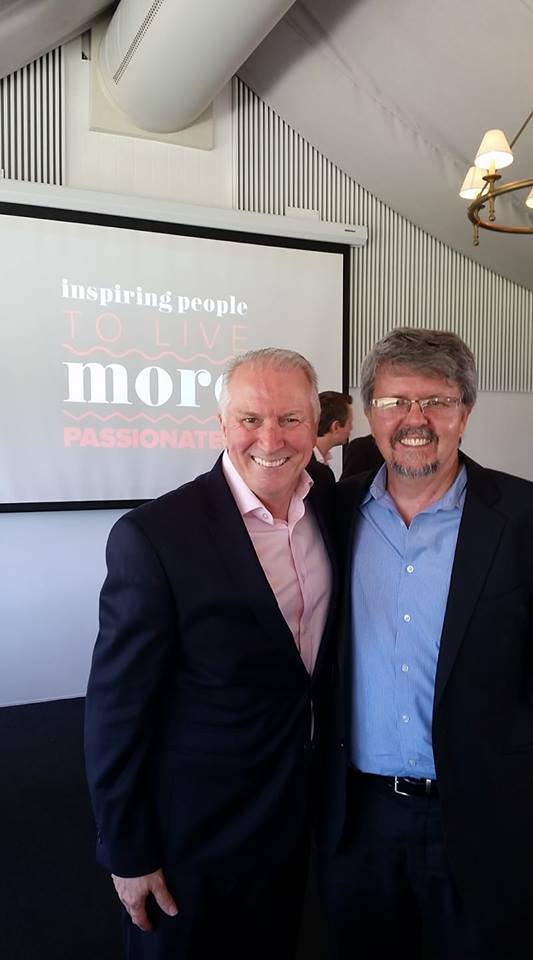 Years ago, I worked for a university in the IT team with an American who brought some very different ideas with him. He was creative and a fan of walking meetings. We would walk the campus discussing plans and strategies. We came up with great ideas. I had forgotten about this until I read an article that said Steve Jobs, Sigmund Freud, Aristotle, Charles Dickens, and Mark Zuckerberg were all fans of walking meetings. The advantages of walking and talking: Neurochemically, our brains are more relaxed during walks due to the release of a cocktail of neurotransmitters. These aid focus, dealing with unforeseen events and reduce depression. Candour – you feel comfortable sharing thoughts, opinions, and ideas. Walking releases filters, lets your guard down, breaking down biases and barriers. Creative thinking - Walking seems to be a catalyst for generating fresh perspectives, discoveries, and ideas. Health - Walking makes you feel good. The average professional spends 9.3 hours per day seated. Higher Energy - Movement yields circulation; circulation yields energy. University of Hong Kong research shows that walking side by side helps people connect within 4 minutes. Want to make a good impression? Go for a walk together. Please comment and share. *Image by Mohamed Hassan on Pixabay
0 Comments
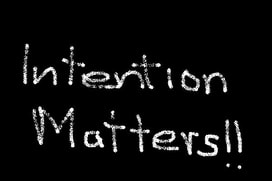 There is interesting research into the effect of others taking notice of one’s behavioural intention (e.g. goal). Where this intention is identity-relevant (e.g. becoming a better engineer, parent, dancer), and strongly felt, what happens to the person’s motivation when the intention is made known to others? Are they more motivated to achieve the intention? Does accountability kick in? Counter-intuitively, the neuroscience shows that motivation decreases, the intention is compromised. The recognition creates a level of subconscious fulfilment, through a dopamine reward, reducing the drive to perform. Those that kept the intention to themselves performed better. This also applies to sub-goals that can then compromise the final goal. A solution is to set Implementation Intentions that specify the exact behaviour you want to perform, e.g. WHEN I get home from work THEN I will spend 20 minutes working on my goal. This sets a process in place that can develop into a habit. One key to incubation is a higher status mentor you respect and trust, who is not threatened by your success, to seek cold, hard advice and feedback. Expect both your commitment and performance to improve. Please comment and share. #GoalSetting #PersonalDevelopment 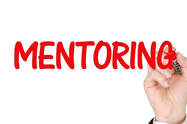 There are activities you are not good at, or don’t know about. Outsourcing those, focusing on your strengths, can accelerate your progress. But you can’t do it alone, a mentor or coach can help. Mentors can be categorised as role model or sage. The role model is someone to emulate, to take on behavioural and character traits of. The sage is one with wisdom and information to teach you how to do things. A mentor: -Sets a bar for performance -Provides advice, bounces ideas -Shares your progress, helps plan actions -Accelerates your development, ensures you don’t have to make every mistake yourself -Can open doors and introduce you to useful people -Has done what you are trying to do or has reached similar goals -Guides you to develop your own solutions -Helps keep you motivated, on track and accountable Your mentors change as you learn and develop and as your goals change, just as you moved between teachers at school. Build a network of trusted collaborators to provide mentorship. Branson, Buffet, and Zuckerberg, premiers and presidents, actors and astronauts all had mentors. Find ones that can add value to different aspects of your life or your business. Please comment and share. *Image by Pete Linforth on Pixabay #GoalSetting #PersonalDevelopment  When I was young I slipped down two wooden stairs while carrying a strawberry jam can (with a tartan on the label) that had been opened with an old lever-type ripping can opener. I sliced myself open, requiring many stitches, and still have a slight scar. I remember it. But do I? I was only 2 years old. Many of you will know someone that loves to gossip, but their telling of an event will contradict the memories of others that were there at the time. And the story changes between tellings. Autobiographical memories integrate memories of experiences into a story, a narrative. The accuracy can be affected by thinking about them (making decisions about the memory that changes it), other experiences, others’ recollections, and the motive at the time. And they become false memories…you can never be sure. Contrary to popular belief, remembering is not like playing a video in your mind – it is a reconstructive process that depends on imagination, perception, knowledge, self-image, and goals. We can use this to our advantage. We can reframe bad memories to remove some of the trauma. You can reframe an exchange that went poorly, to be more the way you would have wanted it, which provides an increased repertoire for the future. Please comment and share. *Image by Efes Kitap on Pixabay #GoalSetting #PersonalDevelopment 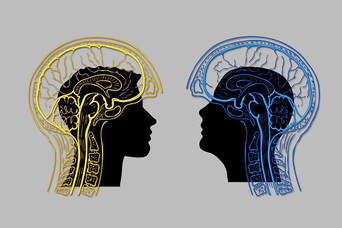 The neuroscience research of Dr Fiona Kerr and others says that from birth we are hard wired to connect, to synchronise mentally, physically and emotionally, when in range of another human being. Dr Fiona Kerr is the Neural and Systems Complexity Specialist at the University of Adelaide. When we lock eyes, we connect with each other’s brains, motivating us to approach one another–preparing for social interaction. The brain releases chemicals that promote feelings of connection between us, lowering stress response, and boosting healing and growth. When we engage, mirror and spindle neurons fire, and oxytocin and dopamine flow pre-empting the beginnings of empathy and trust. A group can synchronise, with a positive contagion effect when in a trusting and positive environment, leading to building shared neural networks of possibility. As a result, in a group of connected people we can change how we see an issue, alter our priorities, and create a capacity to collaborate more quickly around shared values. The best way to build rapport is with face-to-face communication, but in these times we are left with looking at a screen. Are you finding you are getting the what is needed to build trust, or are new connections waiting on the day we’ll be able to go back to face-to-face? Please comment and share. *Image by Gerd Altmann on Pixabay #GoalSetting #PersonalDevelopment  Click Mark Granovetter, University of Chicago, published a paper in 1974 on a study of 282 men and how they got jobs. He looked at how they found out about the position, who gave them referrals, how they landed interviews, and who had helped them. The study found that when they approached strangers, they had little success, but with friends, help was given. The most surprising finding was they received the most help from casual acquaintances, “professional friends”, friends of friends. Granovetter called these connections “weak ties”. These weak ties, numerous and varied, gave the men access to social networks they otherwise don’t belong and proved more useful than strong-tie relationships. Strong ties in one’s network can provide high-quality mentoring, developmental relationships and safety. What changed in the last 40 years? Nothing! Your network, and your network’s networks, are as important as ever, and according to predictions on the job market of the future, will be even more so. These ties gave power to global movements such as civil, disability and voting rights. They apply to business, in fact to any interaction between people towards an outcome. In Mathematical Sociology they are responsible for most of the structure of social networks. Have you found your weak ties useful? Please comment and share. *Image by Rudy and Peter Skitterians on Pixabay #GoalSetting #PersonalDevelopment here to edit.  Feeling you don’t deserve a goal can stop you pursuing it. If achieved, you can feel undeserving (Impostor Syndrome) and lose it. Dig deep, find the reason WHY you want it. Understand that everything you do is for you. If you work for charity, do a friend a favour, help little old ladies across the road, work 80-hour weeks – it is all to satisfy your psychological needs. Use this and work out WHY you want the goal. Reflect on this every day, program the subconscious to believe there is no risk to you (no “dark alleys”). Break the goal into chunks. Celebrating after achieving each chunk gives your brain a dose of DOSE (Dopamine, Oxytocin, Serotonin, Endorphins) and it likes it. Reflect on what you have done, and on your WHY. At the finish you will know it is your success. Take responsibility for everything in your life. Whatever has happened and will happen to you, is your responsibility. You are responsible through agency (an intended action) and negligence (ignoring the situation). Taking responsibility for a problem does not mean it is your fault. It does mean that you are in control, taking you from victim to victor, giving you power to get results. Responsibility empowers you. Please comment and share. Photo by Tomáš Novák on Pixabay #GoalSetting #PersonalDevelopment  We visualise our goal to motivate us to action. However, the neuroscience says that we should visualise the desired outcome, and then, somewhat counter-intuitively, imagine the present reality and the obstacles standing in the way of achieving the goal. Research by Oettingen et al, shows the process strengthens links between future and reality (the obstacle), and between the reality and means to overcome the obstacles. This is called Mental Contrasting. This differs from negative self-talk as it is a deliberate positive process. In fact, just visualising the desired future reduces the motivation to perform, the subconscious believing it has achieved the goal. Mental Contrasting provides the energy to take action. When taught as a strategy to middle managers MC led to better decision making. BUT MC only works with high expectations of success. If high, MC helps you learn from negative feedback and form constructive plans, to “own the pain”. If expectations are low the goal will be adjusted, postponed or dropped. This can be good, as it frees resources to focus on achievable goals. However, progress towards a goal can strengthen belief and increase expectations. Please comment and share. *Image by Glen Carrie on Unsplash #GoalSetting #PersonalDevelopment  Assessing your financial position, reviewing assets and liabilities, is a starting point for an investment strategy. When deciding on goals to set and the path to achieving them you can do a similar exercise, so you can work your strengths, work on some weaknesses, and outsource the rest. They may be mental, behavioural, physical, relational or experiential. In this exercise Assets may be things like money, job, knowledge, skills, passion, persistence, hard work, supportive partner and a network of useful contacts. Liabilities (constraints) might be self-doubt, debt, or lack of knowledge, skills, confidence, drive or access to capital. Taking stock of your personal balance sheet enables you to craft the goal based on your strengths. You may craft a Discovery Goal, preparing for the journey to reach a goal by addressing your constraints. Some you may decide to work on, such as developing knowledge or a skill. Some you outsource to others who have that strength and bring them onto your team. One key asset, however small, is your network, an asset always worth building as it will tip the balance (pun intended) in your favour, providing access to resources to aid in the areas you need. Please comment and share. *Image by Peggy and Marco Lachmann-Anke on Pixabay #GoalSetting #PersonalDevelopment  You have to put in effort and action, yes. The trick is the make striving for and achieving the goal fun and rewarding. If discipline is not your strong suit there are neuroscience tricks to help you. Work out WHY you want the goal, this is a strong motivator. Leave yourself notes (house, car, office, wallet) to spend 10 minutes on it every day (Implementation Affirmation). Review your progress and celebrate your success (even a little celebration for a little win). Get others involved who want to help you along the way. Focus on the path, use the goal as a motivator. Realise that it is OK to change your mind. If you miss a deadline then reset it and keep going. Start with smaller goals and make success a habit. Do you want to know what the real secret to achievement is? It is consistency. Doing everyday something that moves your closer to your goal. To boost the power of consistency, try and make actions into habits. Work out the best time of day and place for you, and deliberately work on your goal every day, same time, same place, anything from learning Spanish to planning a property development. Please comment and share. *Image by Janos Perian Pixabay #GoalSetting #PersonalDevelopment  When I was in my 20’s I was in an organisation with a brilliant personal development program and I needed it. But I was taught that I should set a goal, put a timeframe on it and go for it. I failed miserably at this technique. How could I set a timeframe on a goal if I didn’t know how to get there, didn’t know the steps to take? We are often told what to do but not how to do it. But I worked in IT and we set goals all the time. Only we called them projects. I also bought, renovated, and sold houses – the renovations were projects. In these cases, my focus was on the Process, the path to the outcome, what I did each day. I call it the path, but it is the journey, the process. The timeframes I set were not set in stone and varied with my available time and resources. Sometime the “goal” would change along the way as I learned more. I am reminded of a comment in a workshop I conducted where one person told me that they were demotivated once they started to set “goals” because they now had an expectation that they didn’t think they could live up to. Break the goal down into sub-goals and have a process that you enjoy doing. Develop the process into a habit for better results. Be flexible and give yourself space. If it doesn't work, change it. Please comment and share. *Photo by Sven Lachmann on Pixabay #GoalSetting #PersonalDevelopment  Understanding why you want a goal is a powerful driver to achieve. It is based on the neuroscience that decisions and emotions come from the same part of the brain. I was talking with a mentor of mine and asked about his latest gig. He is paid a tidy sum, has no staff or position title, and yet takes responsibility for delivering the outcomes he was contracted for, and more. “How?”, I asked. His reply - there are those with influential positions, and there are the influencers. Coincidently I was watching a Simon Sinek talk and he said there are leaders and there are those who lead. The common element? A deep understanding of why. My mentor articulated why things should be done, why they should be done a certain way. He then empowered staff to follow through on detail. This approach endeared him to staff, engaged senior management, enabling him to deliver outcomes across organisations where he had no formal authority. Simon Sinek said the same thing, people don’t buy what you do, they buy why you do it. This power of why is contagious to others and has been so many times – think Martin Luther King, Apple, Apollo 11. Our beliefs from the past, our purpose for the future., inform our WHY. Please comment and share. * Photo by Arek Socha on Pixabay #GoalSetting #PersonalDevelopment  A 2009 study funded by the US NIH asked 1600 people to do two extra things to lose weight … write down (not type) what they ate and bring the diary to a weekly group meeting. They doubled their weight loss compared with others. A notable participant went from being obese, a smoker, drinker, jobless, in debt, to having a full-time job, buying a house, running marathons and getting engaged. When Paul O’Neill took over as CEO of Alcoa (US biggest aluminium company) in 1987 stock prices were down, investors unhappy. O’Neill focused on one thing … worker safety. Over the next 10 years Alcoa stock rose 200%. Why, what did they have in common? They tapped into a keystone habit. By concentrating on that one habit, the people began to reprogram other habits in their lives. A kind of domino effect. And they were accountable to themselves and to others who shared their journey. Writing it down puts it in black and white and makes your actions clear, and you can’t hide from them. Measure it to manage it. What is the one thing that you could do that when turned into a positive habit could change your life? Deliberate action will give you deliberate results. Progression rather than revolution. *photo by Jeremy Bishop on Unsplash A few more words on sharing your goals - an article I posted on LinkedIn. There is very interesting research into the effect of others taking notice of someone’s behavioural intention (e.g. goal). Where this intention is identity-relevant (e.g. becoming a better engineer, parent, dancer), and strongly felt, what happens to the person’s motivation when the intention is made known to others? Are they more motivated to achieve the intention? Counter-intuitively, motivation actually decreases. The recognition by others creates a level of fulfilment in the subconscious, reducing the drive to perform. Those that kept the intention to themselves performed better. Goals in the early stages are fragile and if not properly incubated, they can perish before they are born. Allow time to define the goal and make some progress towards it. Once the goal is firm and defendable, then tell others; some of them may want to join you on the journey. The key to incubation is to have a small group of people you know, like and trust, that are not threatened by your success, to seek cold, hard advice and feedback, (not praise! The subconscious needs to know that there is work to be done). I recommend you build a network of trusted people that provide the incubation, and a bigger group to help progress of goal. Photo by Rawpixel on Unsplash  Here is a thought – it is better not to focus on your goals. When I was in my 20’s I was in an organisation with a brilliant personal development program and I needed it. The leaders at the time taught that I should set a goal, put a time frame on it and go for it. I failed miserably at this technique. How could I set a time frame on a goal if I had no clue how to get there? But I worked in IT and we set goals all the time, only we called them projects. I also bought, renovated, and sold houses – projects. In these cases, my focus was on the Process, the path to the outcome, what I did each day. The time frames I set were not set in stone and varied with my available time and resources. Sometime the “goal” would change along the way as I learned more. I recently read a blog post about people being demotivated once they started to set “goals” because they now had an expectation they didn’t think they could live up to. I think this is what happened to me. My goals now have a process that I enjoy doing. Photo by Patrick Schneider on Unsplash I posted in Addendum to Myth 17 about early recognition of your goal by others reduces your motivation to complete the goal. This paper by renowned goal achievement researcher Prof Peter Gollwitzer (and associates) explains the research behind this phenomenon.
Got together with international goal achievement guru, and Brisbane boy, Keith Abraham. Keith makes it simple and inspiring!
 Look at all those successful people, they have never failed Failure is the path to success. Take a look at some familiar names. J.K Rowling, the author of Harry Potter – Divorced, raising a child, penniless, rejected by 12 publishers and told to get a day job as there was “no money in children’s books.” Nick Woodman – First two companies failed, lost $4 million, went on to invent the GoPro camera, now worth $2.6 billion. Colonel Harland Sanders – Aged 66, almost broke, living off social security. Legend has it he had over 1,000 attempts to sell the first KFC franchise. Walt Disney – Studio went bankrupt, created Disneyland after five years planning and much difficulty obtaining funding (purportedly over 300 banks refused). James Dyson – 5,217 attempts over 15 years at inventing the bagless vacuum cleaner. Now worth $5 billion. John Grisham – First book took three years to write and received rejection from 28 publishers. Stephen King – First book was rejected 30 times. Steve Jobs – Made some monumental mistakes including the Lisa, Apple III and PowerCube computers, hiring John Sculley as CEO who eventually sacked Jobs from Apple, Apple TV, NeXT computer. Richard Branson – Almost jailed for tax evasion with Virgin records, failures of Virgin Cola, Virgin Vodka, Virgin Brides, Virgin Ware, Virgin Clothing, Virgin Vie cosmetics, Virgin Cars, Virgin Digital, Virgin Pulse and Virgin Megastores. Henry Ford – Was broke five times before establishing the successful Ford Motor Company Harrison Ford –it took him 9 years to land a role in a movie. He was told he would never make it in the movie industry. Robert Kiyosaki – had several bankruptcies before, at 50 years of age, he penned Rich Dad, Poor Dad, which has since sold 26 million copies. Sylvester Stallone – broke, homeless, living out of a bus terminal, he was rejected 1,500 times by people in the movie industry. He wrote Rocky and was offered $325,000 for it if he didn’t star in it. He starred in it. Rocky grossed $200m. For more goal setting myths, visit: https://www.chrislchristoff.com/blog For more tips on setting goals, visit: https://www.chrislchristoff.com/resources Photo by MK1 Fiesta on Pixabay  In Myth 17 I talked about not sharing a goal too early. I recently read a paper on some very interesting research into the effect of other people taking notice of someone’s behavioural intention (which may be a goal). Where this intention is identity-relevant (i.e. becoming a better engineer, parent, dancer), and strongly felt, what do you think happens to the person’s motivation when the intention is made known to another person, or other people? Does it increase? Are they more motivated to achieve the intention? Somewhat counter-intuitively, motivation actually decreases. The recognition by others creates a level of completeness in the subconscious, of fulfilment, reducing the drive to perform. Those that kept the intention to themselves performed better. Even sharing with a mentor could have this effect if they don’t manage you correctly. The theory is that this would extend to other types of intentions, or goals. More reason to keep your goals to yourself in the early stages. For more goal setting myths, visit: https://www.chrislchristoff.com/blog For more tips on setting goals, visit: https://www.chrislchristoff.com/resources Photo by Erik Jan Leusink on Unsplash  I am not responsible for everything that happens to me Responsibility is a key trait for accepting that you deserve what you want and take the steps to get it. You must take responsibility for everything in your life. Everything, whatever has happened and will happen to you, is your responsibility. You are responsible through agency (an action you intended to do) and through negligence (ignoring the situation and letting it develop). Taking responsibility for a problem does not mean it is your fault. It does mean that you are in control, taking you from victim to victor, giving you power to make changes to get results. Responsibility empowers you. If you are at fault what do you do? You feel and express empathy and sympathy. Review the situation, make amends and reparations, learn any lessons from it and move on. In accepting responsibility, you do not take on any guilt. Guilt is an anchor, responsibility is a driver. Care for the wound, dress it, medicate it, let it heal, learn from the experience. Don’t keep reopening the wound, move on. You are also accountable – see Myth 27. For more goal setting myths, visit: https://www.chrislchristoff.com/blog For more tips on setting goals, visit: https://www.chrislchristoff.com/resources Photo by ToNic Pics on Pixabay The goal is the most important thing
Having a goal, as clearly defined as possible, is important to achieving. Just as important is the path you follow. The path is where the work is done, where you set the minor goals, you learn, fail, have fun, celebrate and succeed. You change. On the path you chunk down the goals and focus on the chunks. You may get part way down the path and decide to change the goal or the time frame. Without the effort there is no goal. Sometimes the goal may not be well defined and you need a preparatory journey to learn skills and to define what the final goal may look like. I call these Discovery Goals and the path is critical to their definition and eventual achievement. For more goal setting myths, visit: https://www.chrislchristoff.com/blog For more tips on setting goals, visit: https://www.chrislchristoff.com/resources Photo by Tom Morel on Unsplash  Real goals are big and scary Only if you want. But even big, scary goals are broken into chunks. Your focus is on the chunk. Think of to as a path to a mountain. You use the mountain in the distance as guidance and motivation, but you focus on where you are walking and what is coming up next. Also, you might get some way along the path and decide that you want to go to a different mountain. For more goal setting myths, visit: https://www.chrislchristoff.com/blog For more tips on setting goals, visit: https://www.chrislchristoff.com/resources See “Flowchart Goal Setting” Photo by Patrick Schneider on Unsplash 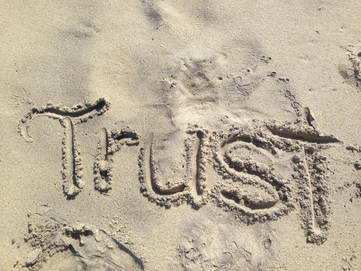 Accountability is another word for blame In your life, in setting goals, you are both responsible (Myth 26) and accountable. To be accountable is to be answerable, to be able to answer for one’s actions, to explain what was done and why it was done. You are accountable for your actions to your family, friends, and the law of the land. When things do go wrong, accountability exercises your integrity and shows others that they can trust you. Accountability is not a negative concept, but blame is. When blame starts, learning stops, fact finding turns to fault finding, and seeking solutions ceases. Blame is censure, punishment and focuses on the past. Blame encourages deceit. Accountability encourages progress. Being accountable for your actions and for the goals you set is a positive experience in helping you achieve them. You are accountable to yourself for your intentions and the actions you have committed to achieving. You may also be accountable to others such as mentors, to business partners for the profitability of the venture, and to financiers for the repayment of loans. Your goals will have an effect on your family and friends, as you take time away from them to spend working on the actions, and they may look forward to participating in the rewards from your venture. For more goal setting myths, visit: https://www.chrislchristoff.com/blog For more tips on setting goals, visit: https://www.chrislchristoff.com/resources Photo by Lisa Attract Love on Pixabay I don’t need reasons for my goals, I just want more
Goals come from decisions. Most decisions are subconscious and come from the limbic area of the brain, the place where emotions come from. Put an emotional reason WHY behind a goal and your subconscious will drive the goal for you. Use this tool to your advantage. For more goal setting myths, visit: https://www.chrislchristoff.com/blog For more tips on setting goals, visit: https://www.chrislchristoff.com/resources Photo by Ian Schneider on Unsplash I have to be super-disciplined to achieve goals
You have to put in effort and action, yes. The trick is the make striving for and achieving the goal fun and rewarding. If discipline is not your strong suit there are neuro-tricks to help you. Work out WHY you want the goal, this is a strong motivator. Leave yourself notes (house, car, office, wallet) to spend 10 minutes on it everyday (Implementation Affirmation). Review you progress and celebrate your success (even a little celebration for a little win). Get others involved who want to help you along the way. Focus on the path, use the goal as a motivator. Realise that it is OK to change your mind. If you miss a deadline then reset it and keep going. Start with smaller goals and make success a habit. For more goal setting myths, visit: https://www.chrislchristoff.com/blog For more tips on setting goals, visit: https://www.chrislchristoff.com/resources |
||||||
